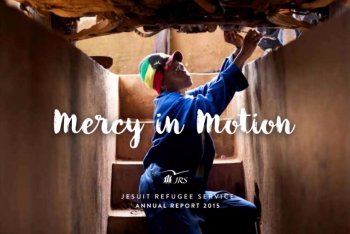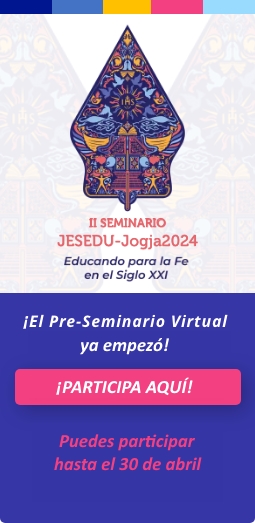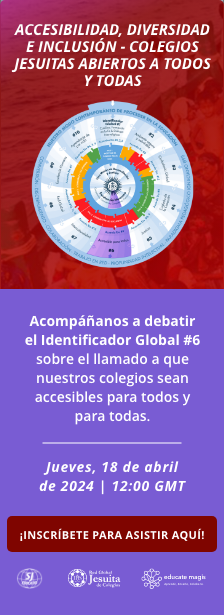«JRS aims to draw refugees holistically, communally, intellectually and practically into a world where their lives are valued and their skills and hearts make a difference.» — Fr Smolich
 Rome, 8 July 2016 – In 2015, the Jesuit Refugee Service reaffirmed its commitment to education with the Global Education Initiative and the launch of the Mercy in Motion campaign. Last year, JRS served 724,551 people, 141,333 through education projects. Recognising education is a concrete and durable solution to build more resilient communities, JRS aims to increase this number by 100,000 people by 2020.
Rome, 8 July 2016 – In 2015, the Jesuit Refugee Service reaffirmed its commitment to education with the Global Education Initiative and the launch of the Mercy in Motion campaign. Last year, JRS served 724,551 people, 141,333 through education projects. Recognising education is a concrete and durable solution to build more resilient communities, JRS aims to increase this number by 100,000 people by 2020.
At the end of 2015, Pope Francis endorsed these initiatives in line with the Holy Year of Mercy, saying education not only provides a future for the youth, but also protection: «Your Global Education Initiative, with its motto Mercy in Motion, will help you reach many other students who urgently need an education that can keep them safe.»
In the report, Fr Thomas H Smolich SJ, JRS International Director says «remember that the word educate is rooted in the Latin educere, to draw out, to lead forth. JRS education seeks to do just that; it aims to draw refugees holistically, communally, intellectually and practically into a world where their lives are valued and their skills and hearts make a difference.»
Twenty-one percent of JRS’ global expenditure in 2015 went toward educational services, and we hope to increase this percentage over the next five years. JRS ensures its educational services are inclusive, healing, practical and enterprising.
In addition to its commitment to long-term solutions such as education and psychosocial support, JRS also provides emergency relief in hard-to-reach areas such as inside Syria. With its mission to serve those most in-need, JRS works together with local lay, Jesuits and other religious communities to provide services where other organisations cannot. Twenty-five percent of JRS’ global expenditure in 2015 went toward emergency relief, comprising 48 percent of the people served. Approximately 300,000 of the displaced persons JRS serves were internally-displaced Syrians.
But even in hard-to-reach places, JRS prioritises education as well. JRS teams comprise and serve people of all faiths and backgrounds and see education as a tool for to reconciliation and peace building.
«Education will bring peace to my country, because as soon as students are educated, they will know their rights, and they will know how to bring peace through the pen and negotiation table,» said Leila, a student of the JRS teacher-training programme in Maban, South Sudan.
You may download a copy of the 2015 Annual Report here.
Source: JRS International
Inicia sesión o Hazte miembro
para crear y ver comentarios

